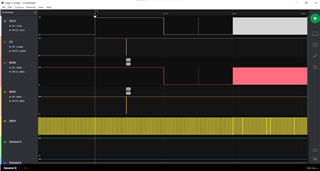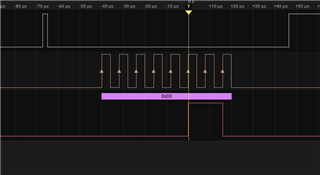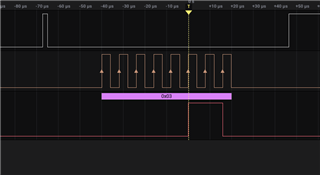Hi,
I have been working on a setup where I connect a sensor (TI ADS1299) to the nRF5340-DK 2.0.0 using an SPI connection and transmit the recorded data using BLE. I have been able to get the SPI connection and the BLE connection working separately, but when combining the functionalities a problem arises. The program builds and programs fine, but when running it, the SPI connection does not seem to be working properly. All registers that store the data are left empty, instead of containing the measured data. The BLE connection does still work but only transmits zeros, probably as the result of the SPI connection not working as it should.
What could be the problem here? Do the nrfx_SPIM and BLE functionalities interfere with each other?
My setup:
PC: HP Zbook G4 Studio
OS: Windows 10
nRF Connect for Desktop v3.10.0
Does anyone have any suggestions on how to fix this issue?
Kind regards,
C







